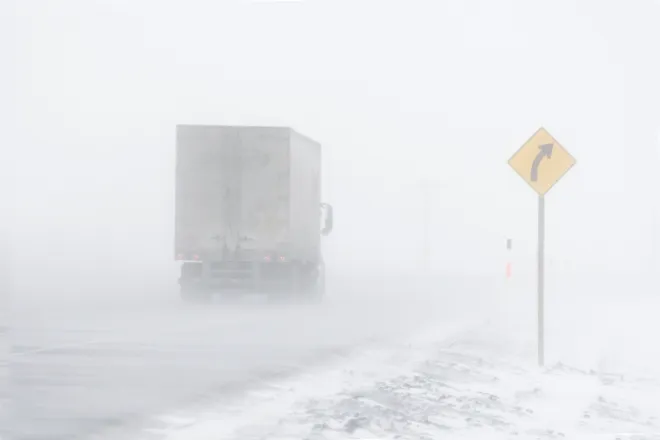
Daily Audio Newscast Afternoon Update - October 22, 2025
© INDU BACHKHETI - iStock-1336427297
News from around the nation.
New England food banks brace for loss of November SNAP benefits; Bill aims to study how AI data centers raise costs for rural Virginians and WA group celebrates 50 years of organizing for human rights.
Transcript
The Public News Service Wednesday afternoon update.
I'm Joe Ulery.
North Carolina lawmakers are wrapping up a redraw of the state's congressional map that could give Republicans one more seat in the US House next year.
ABC News reports the plan aims to weaken Democratic Congressman Don Davis' chance for re-election in the state's Northeast.
The Senate approved the map Tuesday and the House is expected to pass it soon.
Governor Josh Stein can't veto redistricting plans under state law.
Democrats call it racial gerrymandering that harms black voters.
Republicans say it's fair and reflects Trump's support across the state.
A new poll finds more than three quarters of people say they want Congress to extend the Affordable Care Act subsidies set to expire at the end of this year.
Farah Siddiqui reports.
About 583,000 Ohioans buy health insurance through the ACA marketplace, putting the state among those at highest risk if the enhanced tax credits expire.
Ashley Kersinger is with KFF, a non-profit health policy research polling and news organization that conducted the survey.
She says with open enrollment right around the corner, many people don't realize the tax credits have an expiration date.
We asked people, "What would you do if your premiums nearly doubled?"
Four in ten said that they would go without health coverage.
Losing that extra help would increase premiums by an average of more than 100 percent, from around $800 a month this year to $1,900 a month in 2026.
About 24 million Americans had Affordable Care Act Marketplace health coverage as of April, a record high for the fourth year in a row, according to federal data.
The global trade war has put Midwestern soybean farmers in a bind, as they currently don't have an export partner.
But soybeans aren't the only crop facing obstacles.
Mike Mullen reports some regional farmers are behind an oat revival and in search of market solutions.
Oats were once a commodity staple in Minnesota before farmers shifted toward other row crops like corn and soybeans.
But in the southeastern part of the state, roughly 60 farmers have formed what's known as the "oat mafia" to diversify what they grow and sell and improve their soil health.
One of them is Shae Lynn Ramthun, also with the Land Stewardship Project, who says there's strength in numbers. to go to the bargaining table and say, we have not just a thousand bushel of oats, but we have 600,000 bushels of oats.
Whether they see it as a benefit of soil health, they see it as a benefit of reducing nitrates or diversification.
They've done the right thing and they don't have the market that they thought that they were going to have.
Despite the collective marketing power, the oat mafia has seen a planned sale with a local milling company fall through.
Ramthan says they're hopeful emerging mill enterprises that cater to these farmers can soften the blow, but adds they need food corporations to take notice.
This is Public News Service.
The Peace and Justice Action League of Spokane is celebrating 50 years of activism on issues ranging from nuclear waste to human rights starting in 1975.
As a teenager concerned about the US war in Iraq, Liz Moore, now the group's executive director, found Pajal's by looking up peace in the phone book.
She says the group's priorities in its 50th year are the same as in its first year, working for a vision of peace, economic justice, and racial equity.
What that means right now is organizing against white Christian nationalism and authoritarianism to push for inclusive, multiracial democracy as a shared vision.
Pajal's offers workshops on protesting and understanding First Amendment rights, says Moore.
The group is also pushing Spokane's lawmakers to create an emergency aid fund to support immigrant families in the area who are being impacted by the increase in ICE activity.
I'm Isabel Charlay.
The University of Texas at Austin was one of nine original universities invited to take part in a higher education compact offered by President Donald Trump.
Frida Ross has the latest.
All universities now have an opportunity to accept the offer.
Trump says he believes universities in this country have lost their way.
Past president of the American Association of University Professors Austin Chapter at UTA, Pauline Strong, says the compact asked the school to make wide-ranging changes to its operations in exchange for preferential federal funding.
"Admissions procedures, curriculum, freedom of expression, the way faculty assess student work, tuition policies, admission of international students."
Strong says AAUP has drafted a letter urging the state's Board of Regents to reject the compact.
Support for this reporting was provided by Lumina Foundation.
Seniors in central Indiana are exploring historic sites across the state without ever leaving their seats.
Stillwater's Adult Center in Indianapolis has partnered with the Indiana State Museum for virtual tours that let seniors with dementia visit places like Angel Mounds, Whitewater Canal, and the Levi and Catherine Coffin House.
Diana Keely is executive director at Stillwaters.
She says the idea grew from a grant and a simple goal
keeping seniors engaged and connected.
Our guests can't go to these places.
The drive is just too far or when they get there it's difficult for them to actually explore and walk the grounds and walk around.
Keely says about 25 to 30 seniors join each session.
Advocacy virtual programs like this help reduce isolation and improve memory stimulation, but others note they don't replace in-person experiences and can be limited by technology access.
This story was produced with original reporting from Amy Felogy for Arts Midwest Indiana.
This is Joe Ulary for Public News Service, member and listener supported.
Find our trust indicators at publicnewsservice.org
















